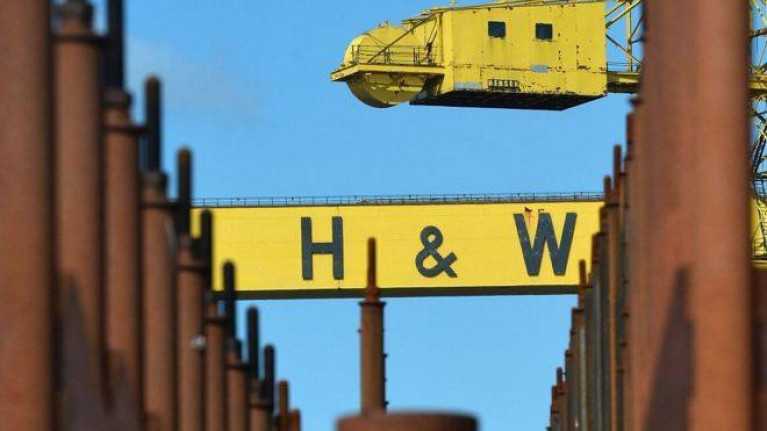Belfast shipyard Harland & Wolff now owned by InfraStrata, has signed a letter of intent to build two wind farm development vessels.
The potential deal, writes BBC News, is being worked on with Triumph SubSea Services.
InfraStrata said that once contracted, each vessel would generate revenues of between £340-360m over the 24-30 month fabrication period.
Both parties intend on executing a contract to build the vessels by the end of June 2021.
However, the letter does not provide for any binding obligations at this point.
The London-based energy firm was bought the historic shipyard last year after it went into administration.
Harland and Wolff will be responsible for the build, assembly and delivery of the vessels to Triumph.
The letter initially contemplates the build of one vessel, with the option for an additional vessel to be built in Belfast.
Click here for more and 'potential' projects at shipyard located on Queen's Island.
As Afloat reported based at Larne Port is MPI Resolution, the world's first purpose-built vessel for installing offshore wind turbines.



























































